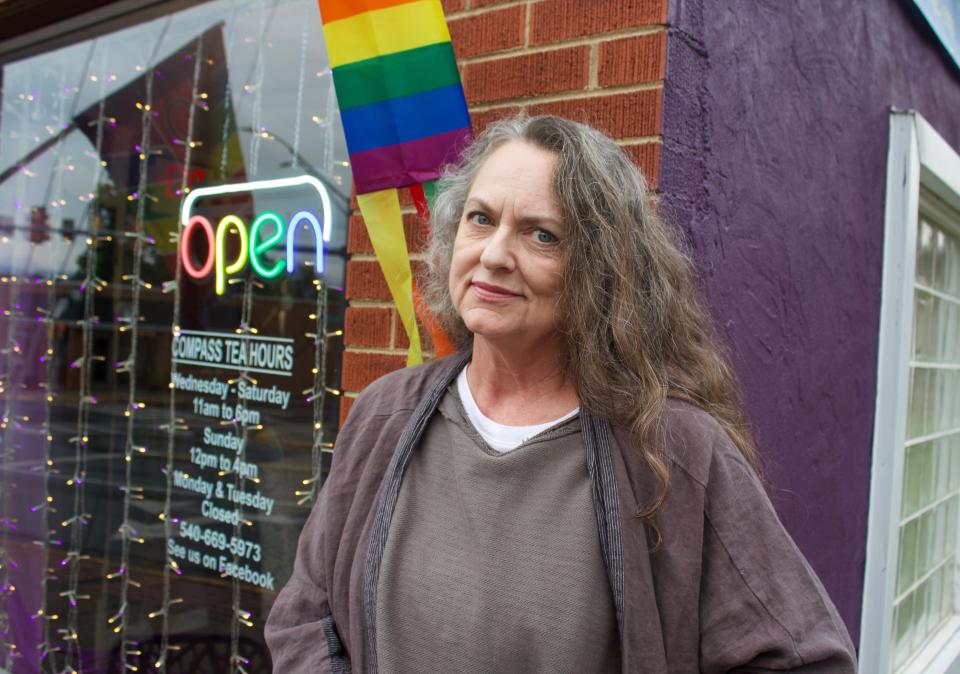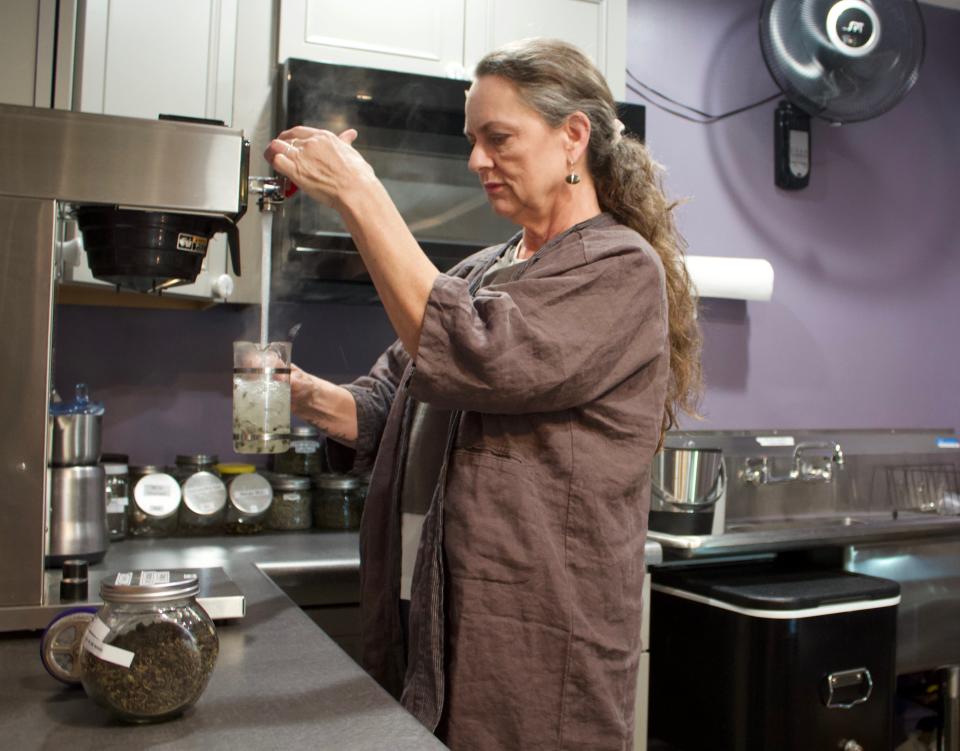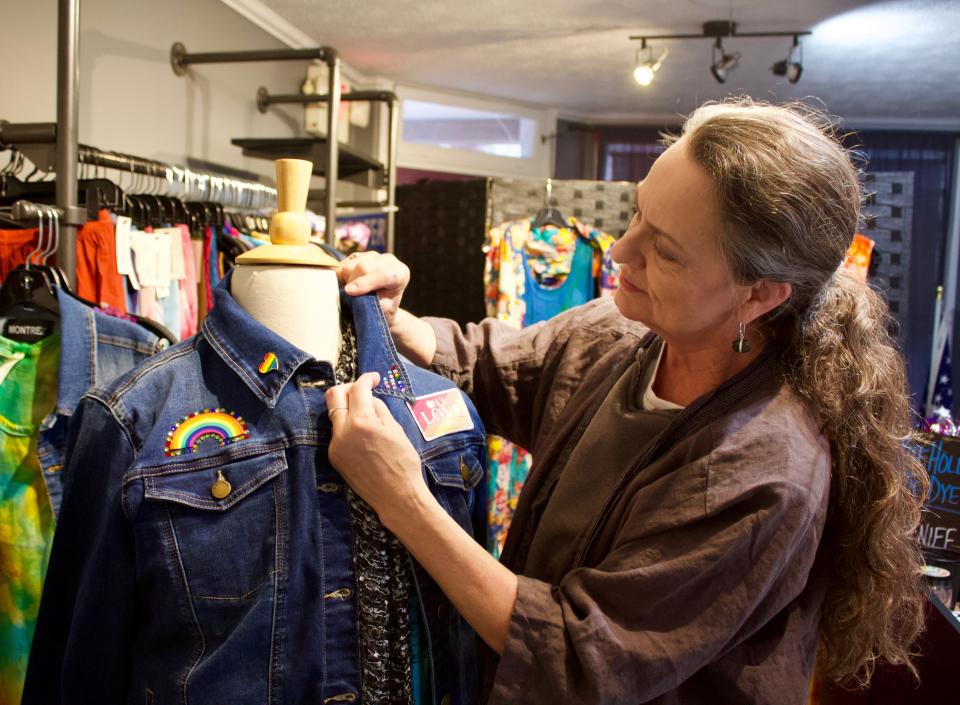LGBTQ-owned businesses were less likely to get COVID relief loans, study says. Here's the data.
LGBTQ-owned small businesses received COVID-19 relief funds at a lower rate than their non-LGBTQ counterparts, even as they were more likely to apply for loans during the pandemic, according to researchers.
The report, published by the Center for LGBTQ Economic Advancement and Research and Movement Advancement Project, analyzed data from the Federal Reserve Banks' annual Small Business Credit Survey, which included questions about LGBTQ identities for the first time in 2021.
Experts told USA TODAY that "poorer economic conditions" on average among LGBTQ-owned small businesses hurt them when it came time to apply for COVID-19 relief – even though Congress said it "targeted funding to the smallest and minority-owned businesses."
Paycheck Protection Program loan applications included a section where businesses could report being woman-owned, minority-owned or veteran-owned. But the Small Business Administration, which administered PPP loans, did not include a section "for business owners to distinguish their businesses as LGBTQ-owned," the SBA told USA TODAY in a statement.
"The lack of visibility of queer people really does mean that our concerns are overlooked," said Spencer Watson, executive director of CLEAR. After 60 years of queer political activism, they said, "It's time for our government institutions to wake up and realize that they need to support queer communities."

'UNACCEPTABLE': A Michigan town may lose its only library after its staff refused to remove an LGBTQ book
WATCH: SCOTUS temporarily backs LGBTQ student group seeking recognition at Jewish university
Even if loan providers weren't discriminating against businesses because of their LGBTQ ties, the percentage of businesses rejected for loans indicates underlying systemic economic discrimination, said Logan Casey, a policy researcher at MAP.
The report, published this summer, found a greater share of LGBTQ-owned small businesses (57%) applied for PPP loans during the pandemic, compared with non-LGBTQ-owned businesses (47%).
But only 54% of LGBTQ-owned businesses got the funds they applied for, compared with 68% of non-LGBTQ-owned small businesses.

How Small Business Administration rule may ease LGBTQ biases in lending
In addition to being in poorer financial health, LGBTQ-owned small businesses were more likely to report they thought they were rejected for loans because "lenders do not approve financing for businesses like mine," according to the report.
Historically, lenders have been prohibited from making loans to LGBTQ-related businesses, and that precedent is still affecting loan application decisions, Watson said. They pointed to a rule still on the books of the SBA that says businesses that get revenue from products or displays with a "prurient sexual nature" are not eligible for loans.
“You can imagine all these different scenarios where, if a person doesn’t approve of whatever it is, these broadly categorized and poorly defined restrictions give them a venue for covering the discrimination behind that decision," Watson said.
If a loan provider is not familiar with LGBTQ culture or the LGBTQ community, they may also be less likely to grasp a business concept and more likely to reject a loan application, Watson said.
The Equality Act, passed by the House of Representatives in 2021, would enact nondiscrimination protections for LGBTQ people in credit and banking. The bill's future in the equally divided Senate is uncertain, even a year after it passed the House.
How financial discrimination can become 'a self-fulfilling prophecy'
When Lisa Smith, who owns Compass Tea Room in Luray, Virginia, was rejected in fall 2020 for a $2,500 PPP loan that would have helped pay utility bills, her best remaining option was to sell her home and move into the back storeroom of her business with her dog, Loki.
She was rejected by the SBA because she is her only employee and doesn't have documentation of paychecks, she said.
"Basically, my register is my ATM," Smith said.
Money from the Paycheck Protection Program could have been used for "mortgage interest, rent, utilities, worker protection costs related to COVID-19, uninsured property damage costs caused by looting or vandalism during 2020, and certain supplier costs and expenses for operations," according to the SBA's website.
"Sole proprietors, independent contractors, and self-employed persons" were eligible for the loans, as well as bigger companies, according to the SBA. But experts told USA TODAY that people who didn't have much experience getting their businesses financed before the pandemic were at a disadvantage.
So when Smith, who identifies as queer, dipped into personal funds to keep her business open, she became part of a larger trend.
“Economic insecurity at higher levels in our community to start with, that makes for businesses being on rockier footing to start with," Casey said. "And then continuing to face that discrimination in financing becomes a self-fulfilling prophecy."
LGBTQ-owned small businesses that participated in the Federal Reserve Banks' survey said they thought they were rejected because they had profitability issues, poor credit or a lack of paycheck documentation – like Smith, according to the report.

In general, banks were more willing to lend to more established and profitable businesses, which perpetuates the financial shakiness of businesses in marginalized communities, Watson said.
Banks "trusted their large partners" during the pandemic, leading to many loans being given to "large businesses that didn’t really need it but were probably good bets," Watson said.
That's one reason why “we’re seeing that these smaller LGBTQ-owned businesses didn’t maybe get as much,” Watson said.
WHAT DOES THE 'B' IN LGBTQ STAND FOR? The difference between bisexuality and pansexuality.
Businesses that were able to get PPP loans are still eligible to have the loans forgiven, according to the SBA. But LGBTQ-owned small businesses also fared worse than their non-LGBTQ counterparts on forgiveness.
The report from CLEAR and MAP found 78% of LGBTQ-owned businesses got full forgiveness for the loans, compared with 88% of non-LGBTQ-owned businesses.
Because they didn't get the financial support "they were owed," Watson said, "LGBTQ-owned businesses are going to recover much more slowly from the pandemic and continue to suffer scars from this period."
This article originally appeared on USA TODAY: COVID relief loans didn't add up for LGBTQ-owned businesses: study

